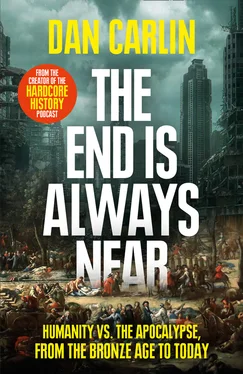Yet the practice often still meant sending children away from their homes to live with a wet nurse, sometimes for years. The casual giving away of children in past eras can astound; in various writings from the eighteenth and nineteenth centuries, children sometimes sound like litters of puppies rather than human beings. The mother-in-law of one nineteenth-century gentleman wrote about a baby that had been promised to another family: “Yes, certainly the baby shall be sent as soon as it is weaned,” she wrote, “and if anyone else would like one, would you kindly recollect that we have others.”
The trauma didn’t end with the sending away. After the child spent years bonding with the wet nurse, they were eventually returned to their biological parents, essentially ripping him or her away from the only parent he or she had known.[12] Sometimes the wet nurses were unkind to their charges, making returning home a blessing, but either way, the child was now faced with complete strangers. Lloyd deMause quotes a piece written by the chief of police in Paris in 1780 estimating that of the, on average, 21,000 children born in that city every year, only 700 were nursed by their biological mothers. (Marie Antoinette, writing in a letter to her mother, noted after her daughter recognized her as her mother in a room full of people, “I believe I like her much better since that time”—which suggests she hadn’t liked her all that much before.)
Children could also be seen much more like a commodity than a family member. Selling children was a profitable business (and there are parts of the world where it still occurs). Children were also farmed out for labor. The Middle Ages institution of the apprenticeship took kids as young as five or six to a neighboring castle or community to begin their working life. This wasn’t seen by parents as a form of punishment or abuse, but more like an internship in which the child would learn valuable foundational skills necessary for later adult success. And farm families since agriculture began have used every strong hand available to work the land and keep food on the table.[13] But seeing children as nothing more than easily exploitable low-wage labor was all too common. It wasn’t until the late 1930s in the United States that child labor in such dangerous industries as mining and manufacturing was outlawed. There was much more opposition to the reform attempts at the time than might be thought. But today the idea of sending a thirteen-year-old into a mine or a twelve-year-old onto an assembly line seems like one destined to stunt the child’s development.
It makes one wonder why our ancestors—many of whom were perfectly smart people—didn’t see how damaging these practices were. Yet perhaps our concept of what constitutes “damage” is different from theirs. They were raising kids to live in their world, a world alien to us. Besides, who knows what child-rearing experts of the future will think about our current practices? Maybe our best practices now will be deemed abusive or damaging to children by future standards. In our defense, we could probably say that we did the best we could knowing what we know now—but that’s also probably what our ancestors would have said.

THE END OF THE WORLD AS THEY KNEW IT
THE IDEA OF “progress” is not without bias. Is transitioning from a hunter-gatherer society to one where humans live in cities an advance, or do we just think it is because that’s where we mostly live now?[1] If a society that is literate is supplanted by one that is not, is that a backward step in the progress of civilization? If the economic vitality and wealth of a society is reduced to a level far below its highs, is that necessarily a “decline”?[2]
Since human civilization first arose, societies have “risen” and “fallen,” “advanced” and “declined”—or so the histories written decades ago often said. More commonly now, historians refer to societies in “transition,” rather than use terms that denote forward or backward development. Continuity, too, is often emphasized, instead of the emphasis found in earlier historical accounts of hard breaks from a previous era.
So, did the Roman Empire “fall” to the “barbarians,” or did it transition to an equal yet more decentralized era, one with a more Germanic flair?
In the period after the Roman Empire disappeared in the West (the time formerly called “the Dark Ages”), many of the capabilities of the people who lived in its wake deteriorated. Eventually, those who lived in what formerly were Roman lands couldn’t repair or build anew the infrastructure that had previously existed. The aqueducts, monetary system, and trade routes were not what they had been. Literacy plummeted in most areas, and other groups and outlets began to perform some of the functions that formerly had been provided by an organized central authority.[3] What would we call it today if we could not emulate the technological, economic, or cultural achievements of our forebears?[4]
The 1968 film Planet of the Apes provides an instructive illustration of the inherent fallacy of the position that our version of humanity represents its final incarnation. In the movie, a bedraggled Charlton Heston (in a loincloth, no less) screams, “Take your stinking paws off me, you damn dirty ape!” In his character’s mind, the apes are beneath him, but to the apes, humans are the inferior species.
At the very end, Charlton Heston escapes, and in the final moments of the film, you see him riding a horse down a beach with a preverbal (i.e., inferior) human girl he’s rescued. When he rounds a bend, he’s confronted with the Statue of Liberty, from the bust up to the crown, sticking out of the sand at an angle, and we realize that the movie is set on earth in a far-flung future.
“You maniacs! You blew it up!” Heston bellows, his fist pounding the sand.
We moderns almost unconsciously consider ourselves exempt from outcomes such as this, which is one of the reasons why that final scene in Planet of the Apes is so effective.[5] It is unimaginable to us that we could have descendants who might live in a world more primitive than our own. Likewise, it was just as impossible for Romans living in the era we now label “antiquity” to envision a future in which the place they knew as “the Eternal City” would ever be a ruin.
THE EARLIEST PIECE of storytelling in the Western canon appeared around the eighth century BCE. The Iliad was supposedly composed by the blind Greek poet Homer, though historians have long thought its text was actually distilled from an oral storytelling tradition that was far older.
The Iliad tapped into a potent mix of dramatic elements that humans have shown an enthusiasm for ever after. The epic poem features facets of superhero films mixed with the J. R. R. Tolkien–style mythical golden age of a far-flung past. It’s the original and ultimate “sword and sandals” epic, an action-packed saga of gods, demigods, and swashbuckling heroes, where the “Greeks” leave their homeland to rescue the kidnapped oh-so-fair wife of a king and embark on a quest that leads them across the sea to fight a great war for a decade and eventually topple a powerful, glorious kingdom led by a rich and lofty monarch. The story has everything—magic and spearplay, dead characters that come back to life as ghosts, the gods fighting among themselves and taking sides with the mortals, sex and romance between star-crossed adversaries, bloody single combats, and heroic loss. It’s even got a sequel, if you consider the Odyssey to be such. But whereas our modern fantastic tales and epics are intended—and are taken by the audience—as fantasy, the ancient Greeks, Macedonians, and Romans often considered their versions more like history.[6]
Читать дальше












